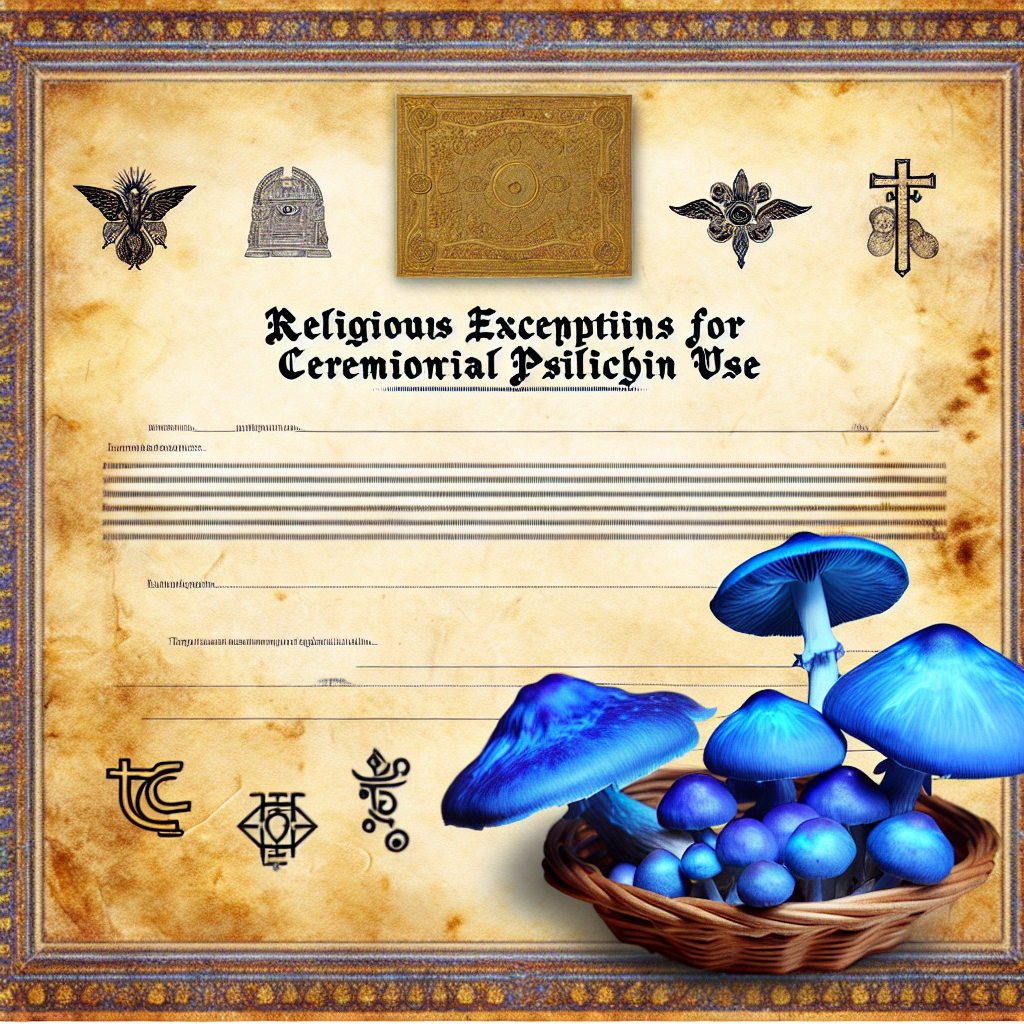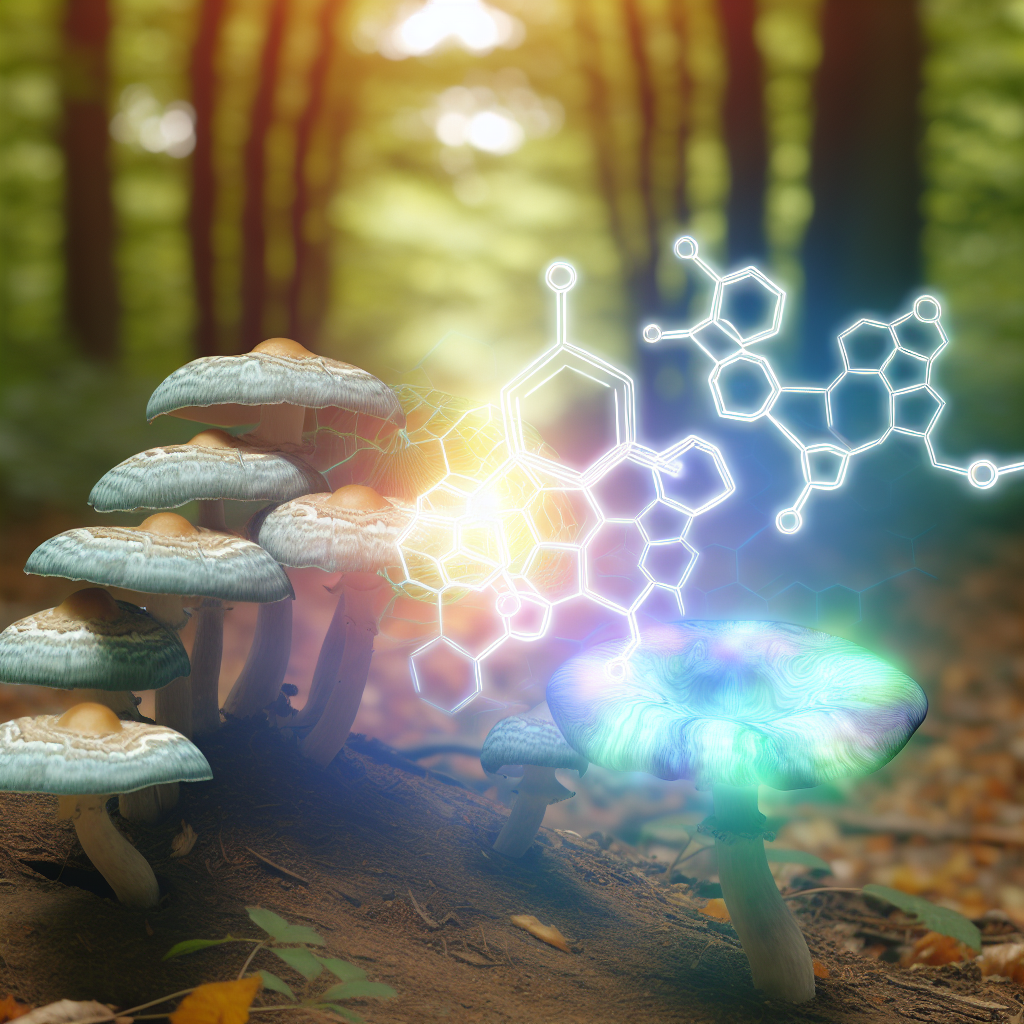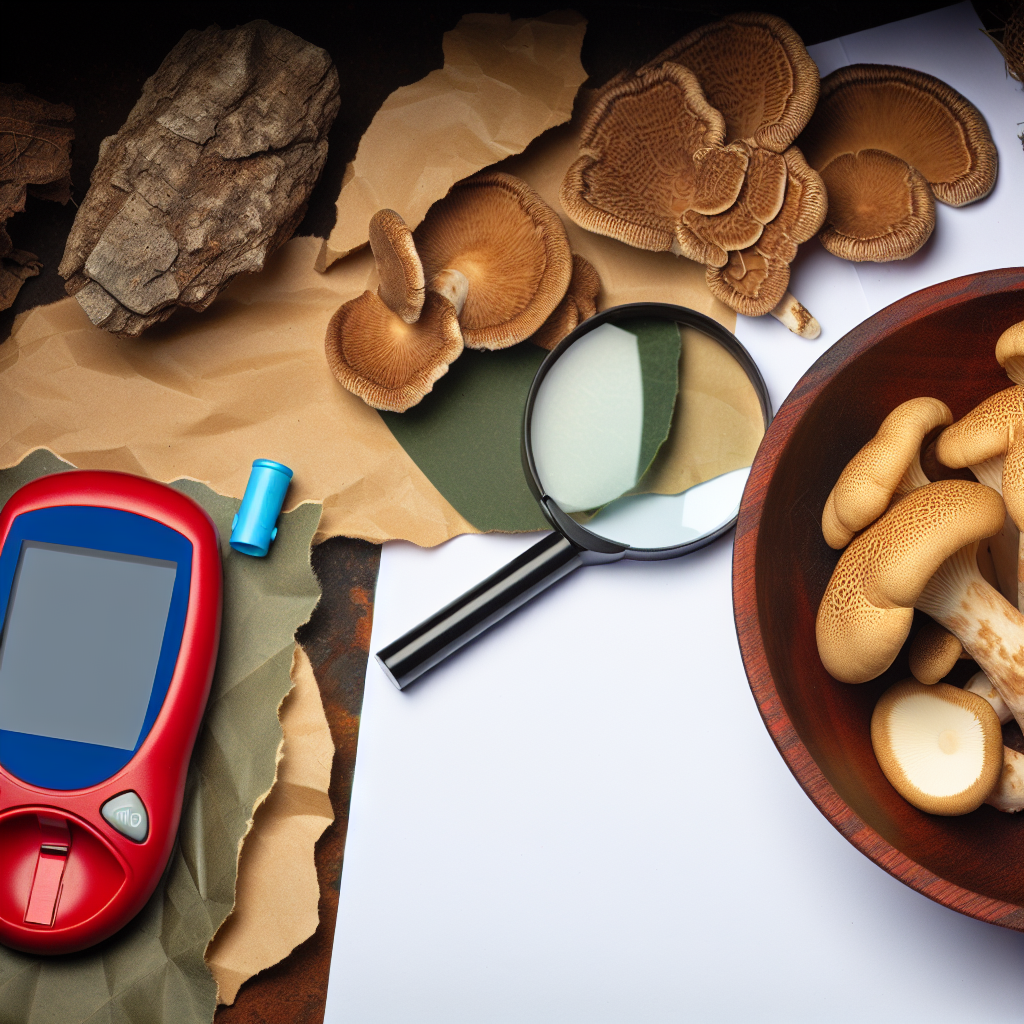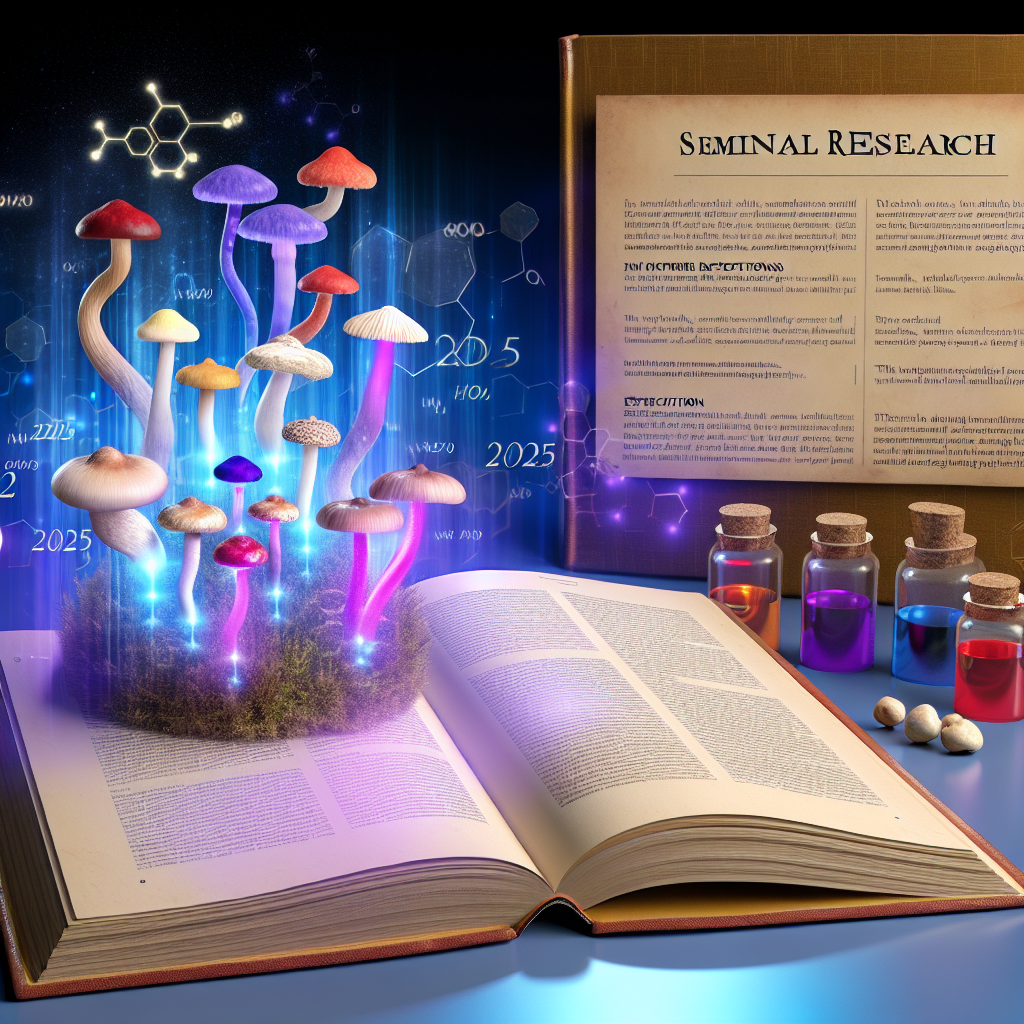Religious Exemptions for Ceremonial Psilocybin Use: A Legal Framework Analysis
Awakening Faith through Fungi: The Rising Interest in Ceremonial Psilocybin
In recent years, the revival of interest in psilocybin—the psychoactive compound in “magic mushrooms”—has extended beyond the medical and scientific communities into the realms of spirituality and religion. With mounting evidence supporting psilocybin’s healing potential for mental health conditions such as depression, PTSD, and anxiety, religious practitioners have increasingly integrated it into ceremonial and sacramental use. This has ignited important legal discussions in the United States and internationally around the concept of religious exemptions for psychedelic substances.
Religious use of psychoactive plants and fungi is not a new phenomenon. Various Indigenous cultures have used naturally occurring substances for centuries to induce altered states of consciousness for tribal ceremonies, healing rituals, and spiritual communion. In North America, for example, the Native American Church has maintained legal protection for its use of peyote (a psychedelic cactus) under the Religious Freedom Restoration Act (RFRA) of 1993. Under similar arguments, proponents of religious psilocybin use seek protections for their spiritual consumption of the fungi.
The intersection of psychedelics and religious liberty, however, is complex. While the Controlled Substances Act (CSA) classifies psilocybin as a Schedule I substance—deeming it to have “no accepted medical use and a high potential for abuse”—the RFRA aims to shield individuals from federal laws that substantially burden their sincerely held religious beliefs. Navigating this legal tension requires analyzing judicial precedent, agency guidelines, and the dynamic role state and local governments play in decriminalization efforts.
As psilocybin therapy gains legitimacy through clinical trials and decriminalization policies shift geographically, more religious groups are stepping forward to request legal exemptions for ceremonial use. Simultaneously, organizations such as the Sacred Garden Community in New Mexico and the Church of the Eagle and the Condor are opening public dialogue and pursuing legal routes for their sacramental use of psilocybin. This article explores the existing legal framework, relevant court cases, and emerging policy directions surrounding religious exemptions for ceremonial psilocybin use.
Legal Precedents and Constitutional Protections: Building the Case for Exemption
The push for legal religious exemptions for ceremonial psilocybin use is grounded in a combination of constitutional protections and growing scientific recognition of the benefits of psilocybin. Under the First Amendment and the Religious Freedom Restoration Act (RFRA), individuals may seek exemptions from certain federal laws if those laws impose a substantial burden on religious practices without a compelling governmental interest.
A key precedent is the 2006 Supreme Court case Gonzales v. O Centro Espírita Beneficente União do Vegetal, which granted the Brazilian-originated UDV Church the right to use ayahuasca (a DMT-containing brew) in religious ceremonies under RFRA. The Court sided with the church, concluding that the U.S. government had not demonstrated a compelling interest in banning sacramental ayahuasca use by a small religious group. This ruling opened doors for other religious organizations using psychedelics, suggesting that similar protections might extend to psilocybin in ceremonial contexts.
From Pews to Petitions: Churches Challenge the DEA for Recognition
Notably, the DEA has received multiple petitions from churches requesting exemptions to use psilocybin sacramentally. In December 2021, attorney Brian Hauss of the ACLU filed a lawsuit against the DEA for delaying its response to Sacred Plant Alliance churches seeking religious protections for psilocybin use. Although there has yet to be clear federal guidance specifically approving psilocybin use under RFRA, ongoing legal challenges could shape future policies.
Science Meets Spirituality: Clinical Studies Bolster the Case
Complementing the legal landscape are medical studies that lend credibility to psilocybin’s safety and therapeutic potential. A 2020 randomized clinical trial published in JAMA Psychiatry demonstrated that psilocybin-assisted therapy led to rapid and sustained reductions in depression symptoms. Additionally, research conducted by Johns Hopkins University has shown that psilocybin can produce significant spiritual experiences, which many participants describe as among the most meaningful events in their lives.
These findings are integral to arguments made by religious organizations, which maintain that their guided psilocybin use facilitates spiritual growth, healing, and communion with the divine. Furthermore, the non-addictive nature of psilocybin and its low potential for abuse support the case for legal allowance under supervised, ceremonial contexts.
Local Decriminalization Gains Traction: A Grassroots Influence on Policy
Decriminalization initiatives are also influencing the trajectory of religious exemptions. Cities such as Denver (CO), Santa Cruz (CA), and Ann Arbor (MI), as well as the entire state of Oregon, have decriminalized or regulated psilocybin use, permitting therapeutic, religious, and even recreational use under specific models. Oregon’s Measure 109, for instance, created a legal framework for psilocybin facilitation centers, which could eventually become accessible to religious groups seeking state-sanctioned models for ceremonial use.
Conclusion: Toward Sacred Legitimacy for Psilocybin Use
As legal and medical landscapes evolve, the potential for religious exemptions for ceremonial psilocybin use is becoming more viable. Guided by constitutional protections, federal case law, and scientific validation, a growing number of religious organizations are claiming their right to spiritual practice through psilocybin ceremonies. While federal clarity is still needed, the momentum from local decriminalization, court precedents, and ongoing legal advocacy indicates that sacred psilocybin use could soon find its place within protected religious expression.
Summary
The article explores the legal framework and emerging policy directions surrounding religious exemptions for ceremonial psilocybin use in the United States. It examines the growing interest in integrating psilocybin into spiritual practices, the legal precedents and constitutional protections that support religious exemptions, and the influence of clinical studies and local decriminalization efforts on the trajectory of this issue. The article highlights the complex intersection of psychedelics and religious liberty, and the potential for sacred psilocybin use to find its place within protected religious expression.
References
– U.S. Supreme Court. (2006). Gonzales v. O Centro Espírita Beneficente União do Vegetal.
– Johns Hopkins Medicine. (2022). Reaffirming Psilocybin’s Lasting Benefits.
– JAMA Psychiatry. (2020). Effects of Psilocybin-Assisted Therapy on Major Depressive Disorder.
– Religious Freedom Restoration Act (1993). Link.
– ACLU (2021). Lawsuit Filed Against DEA for Delaying Responses to Religious Psychedelic Church Petitions.
– Oregon Health Authority. Oregon Psilocybin Services.

Dominic E. is a passionate filmmaker navigating the exciting intersection of art and science. By day, he delves into the complexities of the human body as a full-time medical writer, meticulously translating intricate medical concepts into accessible and engaging narratives. By night, he explores the boundless realm of cinematic storytelling, crafting narratives that evoke emotion and challenge perspectives. Film Student and Full-time Medical Writer for ContentVendor.com




